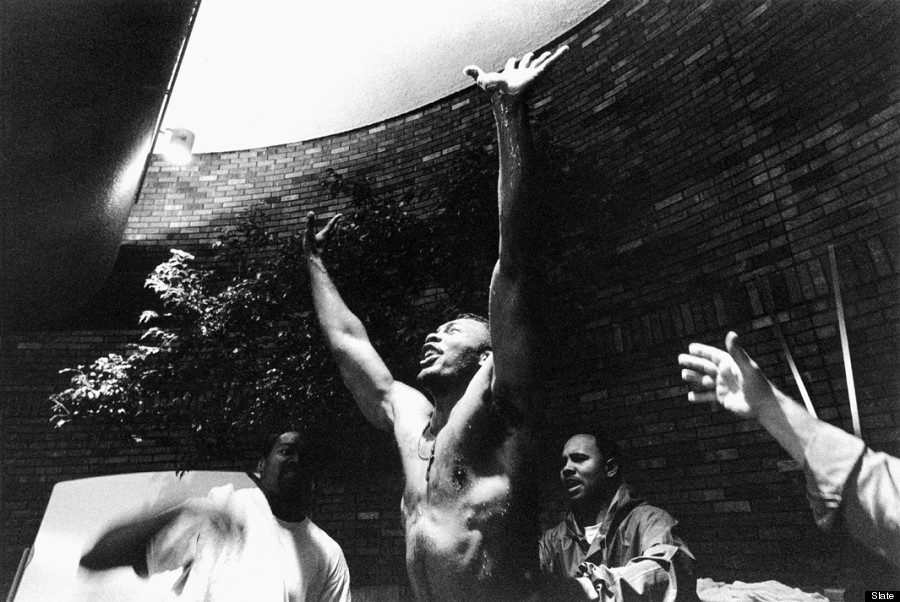By Jordan G. Teicher
It was simple curiosity that guided photographer Serge J-F. Levy to New York’s Green Haven Correctional Facility in 2002. “Without having any personal predisposition to any religious activity but having a fascination with how people can work on their spirituality and healing their souls, I was interested in how this was happening in an environment that seemed to be everything but conducive to that,” Levy said.

That trip was the beginning of a 2½-year project for Levy that ultimately took him to six maximum-security prisons and one super maximum-security prison in states including Pennsylvania, Minnesota, and Louisiana. But getting access was tricky, requiring a mix of networking and persuasion. “Other than the obvious ways, it's not too easy to get into prison. It's a real challenge to convince people of your intentions, and I felt very lucky to have my intentions aligned with something that was pretty hard to see a negative take on it,” Levy said. “I wasn't going in and looking for the cracks in the toilet bowl and poor inmate conditions. I was looking at something that could possibly make a prison and its staff look better.”
Levy’s photos capture a diversity of religions and religious practices. There are Muslims, Jews, Christians, Buddhists, and Wiccans engaging in a range of practices, from silent prayer to large services. “I was looking for a variety of experience. I wanted to really get everything from that public experience all the way down to the private experience. Because that's the breadth of what religion and spiritually means to people,” Levy said.
Though he had access to the prisons, getting the prisoners to participate was often a challenge. At one prison, he visited a mosque three times before more than just a couple worshipers would grant him permission to photograph them. Other experiences proved to be extremely moving. At a women’s facility, Levy heard prisoners at a group meeting describe their experiences with rape. “I had to put down my camera. I was incapable of working because it was just too much,” Levy said. “It really brought together what the story was about. We don't know how people arrive in prison until we start to listen to how they arrived there. There's no excuse for the damage a felon criminal has done, but there is possibly an explanation.”
In an environment often characterized by machismo, Levy said, religious experiences, full of emotion, warmth, and brotherhood, often bring out the softer side of inmates. There was even genuine joy on display, especially during a group baptism in a laundry cart. “To me, that was the quintessential religious experience,” Levy said. “The music and the singing, that sort of excitement I think is contagious in any religious environment, but I think the fervor is just so peaked in those places.”
It was in quieter moments, however, when Levy said he saw the deeper power of religion in the lives of prisoners. “There's this sincere desire on the part of many inmates to try to understand the state of their soul,” Levy said. “They're trying to understand their predicament, and I think that spirituality in prison not so infrequently dovetails with a form of analysis or therapy. I think there's a sense of introspection and evaluation of one's life that happens within these religious environments, especially in one-on-ones with the chaplains. I didn't expect to see that, and it's fascinating.”